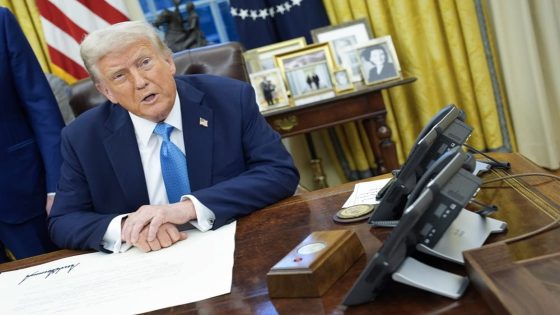On February 1, 2025, former President Donald Trump announced plans to impose tariffs on the European Union (EU) if the bloc does not increase its purchases of American oil and gas. This statement marks a significant escalation in his trade rhetoric, as he indicated intentions for “substantial” actions but did not specify which goods would be affected.
- Trump threatens trade war with EU.
- Tariffs not specified for certain goods.
- Previous tariffs sparked EU retaliation.
- EU exported $576.3 billion to U.S.
- Canada and Mexico face new tariffs.
- China imports subject to 10% tariff.
During his previous term, Trump had already implemented tariffs on steel and aluminum imports from the EU, leading to retaliatory measures from Europe. The EU has expressed readiness to respond similarly if new tariffs are enacted.
Trump’s recent remarks come amid ongoing discussions about transatlantic trade relations. In his first term, he imposed significant tariffs that led to a trade war with the EU, prompting retaliatory tariffs on U.S. goods such as whiskey and motorcycles worth around $6 billion. The current situation reflects heightened tensions over energy exports and economic policies.
The following key details illustrate the trade dynamics between the U.S. and the EU:
- The EU exported approximately $576.3 billion in goods to the U.S., accounting for nearly 20% of its total exports in 2023.
- The U.S. remains the second-largest trading partner for the EU.
- Trump also announced additional tariffs of 25% on goods from Canada and Mexico, alongside a 10% tariff on imports from China effective immediately.
The European Commission has stated it is prepared to retaliate against any new tariffs imposed by Trump, indicating that both sides are bracing for possible escalations in their trade relationship once again. As these developments unfold, they could have significant implications for global markets and international relations.
This announcement signals a potential return to aggressive trade tactics reminiscent of Trump’s earlier presidency, raising concerns about future economic interactions between major global trading partners.
































